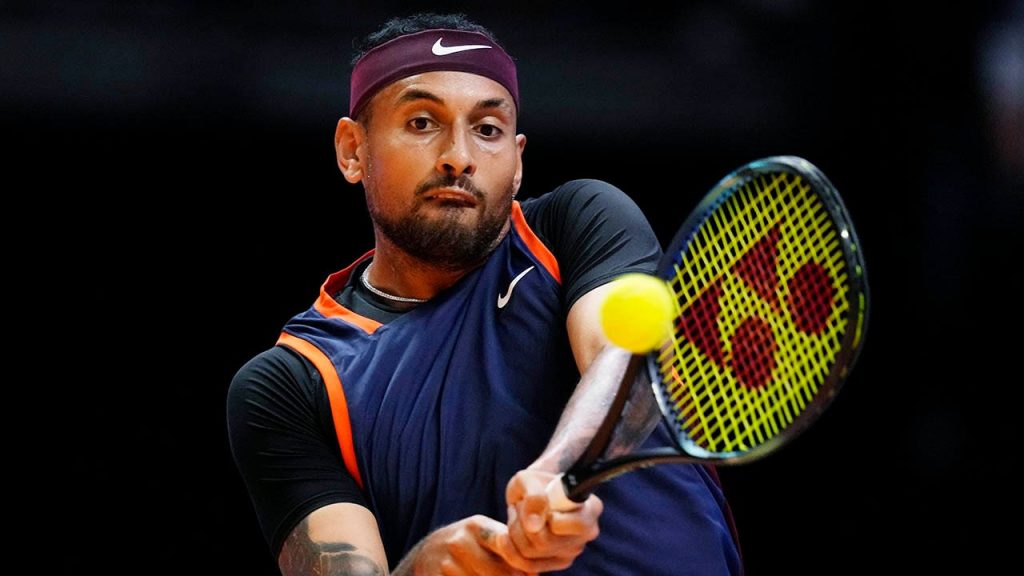The tennis world was rocked by doping allegations against two of its top-ranked players, Jannik Sinner and Iga Swiatek, in incidents that ignited a firestorm of controversy and raised serious questions about the integrity of the sport. Both players tested positive for banned substances, sending shockwaves through the tennis community and prompting outspoken reactions, most notably from Australian tennis star Nick Kyrgios. While Sinner was eventually cleared of wrongdoing, the initial allegations and Swiatek’s acceptance of a one-month suspension cast a long shadow over the sport.
The incidents unfolded as the Brisbane International commenced, with the International Tennis Integrity Agency (ITIA) announcing the charges against both Sinner and Swiatek. Sinner tested positive for an anabolic steroid in March, while Swiatek’s positive test for trimetazidine came to light in November. The timing of the revelations, particularly in Sinner’s case, added fuel to the controversy, with many questioning the delay in disclosing his positive test, especially given his eventual exoneration. The ITIA’s handling of the situations raised concerns about transparency and consistency within the anti-doping procedures in tennis.
Kyrgios, known for his candid and often controversial opinions, didn’t hold back in expressing his disgust at the doping violations. He labeled the incidents “disgusting for our sport” and a “horrible look,” highlighting the damage they inflict on the image and credibility of professional tennis. He went further to criticize the overall state of tennis integrity, suggesting that the issue is widespread but often swept under the rug, a sentiment that resonated with some observers who felt that the sport needs to be more proactive in addressing doping concerns.
Kyrgios’s strong reaction stemmed not only from his personal commitment to clean sport but also from his own experience with injuries and the temptation to seek shortcuts in recovery. Having battled knee issues that sidelined him from competition since June 2023, Kyrgios revealed that he had been aware of prohibited substances that could have accelerated his healing process. However, he emphasized his unwavering stance against such practices, stating that using banned substances is simply “not who I am.” This personal perspective added weight to his condemnation of Sinner and Swiatek’s violations, underscoring the ethical dilemma faced by athletes struggling with injuries.
While Swiatek accepted responsibility for her positive test and served a one-month suspension, Sinner’s case took a different turn. He argued that the presence of clostebol, the anabolic steroid found in his sample, was due to accidental contamination by his physiotherapist during treatment. The ITIA, after reviewing the evidence, accepted Sinner’s explanation and cleared him of any wrongdoing. However, the incident raised questions about the potential for inadvertent contamination and the need for stricter protocols to prevent such occurrences.
The controversy surrounding Sinner and Swiatek’s doping allegations highlighted several critical issues within professional tennis. The timing of the announcements, the transparency of the ITIA’s investigation process, and the potential for accidental contamination all came under scrutiny. Kyrgios’s vocal criticism further amplified these concerns, sparking a debate about the prevalence of doping in the sport and the need for more robust measures to ensure its integrity. The incidents served as a stark reminder of the challenges faced by professional sports in combating doping and maintaining a level playing field for all athletes. Furthermore, it underscored the importance of athletes taking personal responsibility for what enters their bodies, even under the care of medical professionals. The long-term impact of these incidents on the players involved and on the sport itself remains to be seen, but they undoubtedly served as a wake-up call for greater vigilance and stricter adherence to anti-doping protocols.

